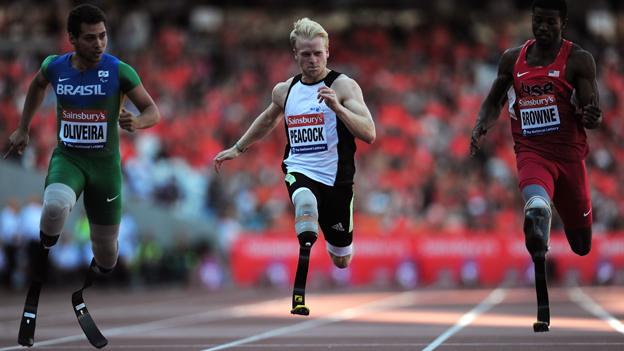National Dwarf Games is about 'ability not disability'
- Published
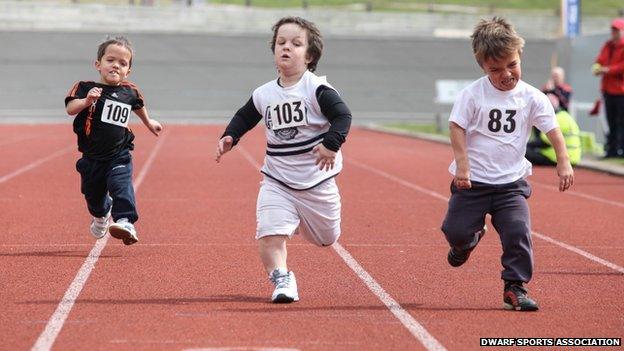
Dwarf athletes will compete in sports including athletics, football, swimming and basketball
When the UK Dwarf Games started in 1995, just 40 athletes took part in the inaugural event.
Over the next three days about 200 athletes with dwarfism will compete against one another in Birmingham and Wolverhampton in sports including athletics, swimming, basketball and rifle shooting.
Organisers say the event has grown significantly in the wake of the 2012 Paralympics which "put disability sport on the map".
Arthur Dean, from Stockport, started the UK version of the tournament after taking his daughter Nichola to take part in the World Dwarf Games in Chicago in 1993.
He said: "Just to see the sense of achievement on people's faces and the lifting of their self esteem that taking part gave them, I thought we have to take this back home."
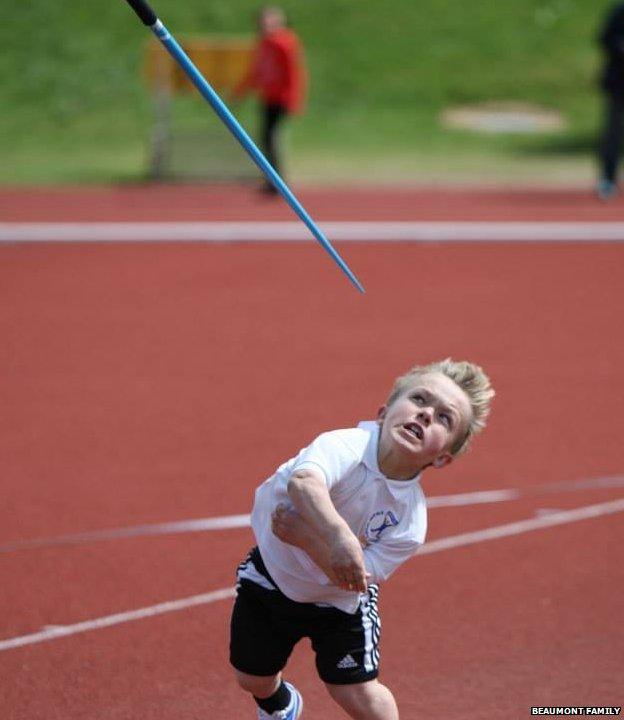
Dylan Beaumont is aiming to compete in the javelin in the 2020 Paralympics in Tokyo
Mr Dean, who is the president of the Dwarf Sports Association (DSA), said traditionally people with dwarfism were "sidelined from sport".
"There is a lot more inclusion these days but when I was young it was 'you look after the kit, you look after the water bottles' and not about actually taking part.
"Here you're competing against someone who is your equal on a level playing field. It's about recognising people's abilities not focusing on disabilities."
As in the Paralympics, athletes are classified in terms of sporting ability and there are three different classes.
The event was a starting point for Great Britain's gold medal-winning swimmer Ellie Simmonds OBE, who will open the tournament on Saturday.
She is also a patron of the DSA.
"I remember being in running races at my school and losing all the time but when it got to the games I found I could compete and even win, it drove me on," she said.
"That's the time when young people get the desire and dreams about getting to the Paralympics and with things like this they can believe it's a possibility."
One young athlete who has aspirations of reaching the 2020 Paralympics in Tokyo is 13-year-old Dylan Beaumont from Liverpool who has achondroplasia or short limb dwarfism.
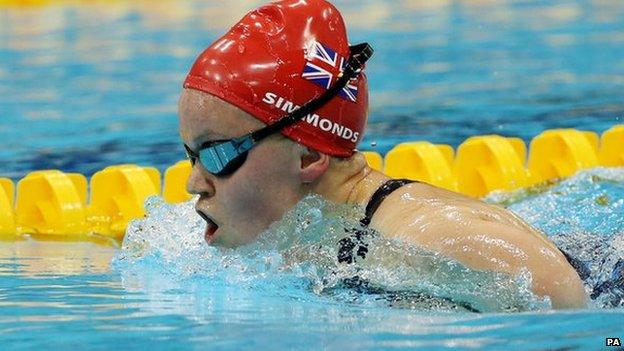
Ellie Simmonds won two gold medals at both the Beijing 2008 and London 2012 Paralympics
He has been attending dwarf games since the age of three and won eight medals for Great Britain in the World Dwarf Games in Michigan last year.
"Coming to the games you get to really surprise people with what you can achieve and I think I surprised myself with what I could do," he said.
"I started doing javelin three years ago and I found I had a talent for it. It just shows we can do anything we want we just do it a different way."
The oldest competitor this weekend is 64-year-old runner April Barrett from Ladywood in Birmingham.
Ms Barrett, who has worked with the DSA for more than 10 years, said the games were more than just about sport.
She said: "You're meeting and mingling with people who are the same as you, you're making friends, comparing notes on the best places to buy clothes and shoes, and talking about our own medical conditions to people who understand.
"It brings people out and shows them they can achieve not only in sport but in everyday life as well.
"Everybody has the same brain that dreams, longs, wants, needs - all the same things - ours just happen to live in a smaller shell."
- Attribution
- Published21 April 2014
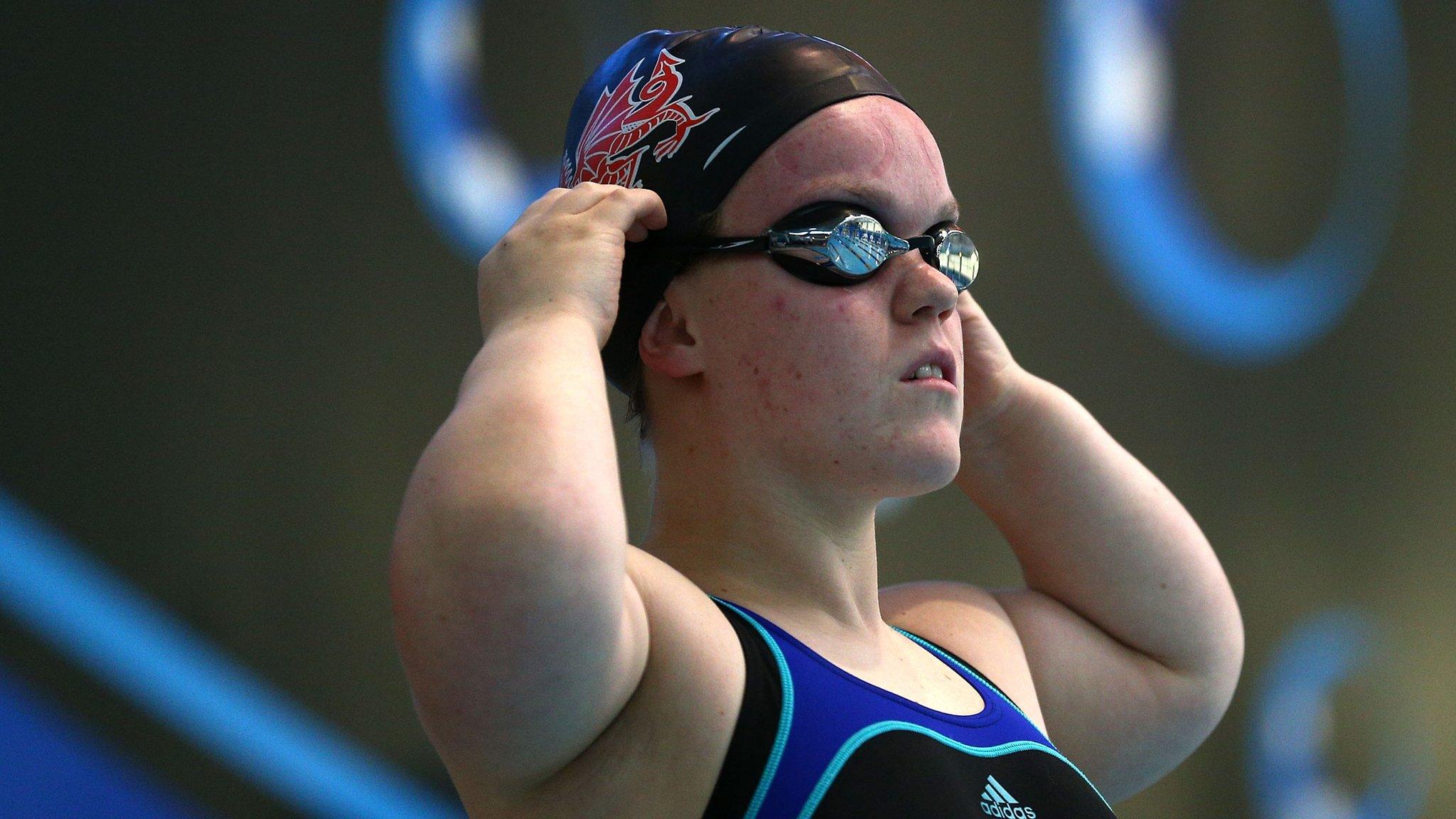
- Published8 August 2013
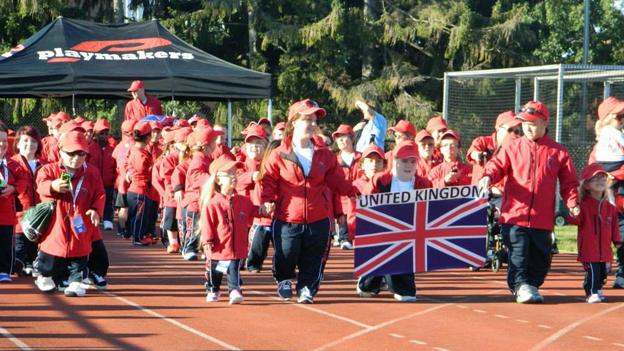
- Published31 July 2013
